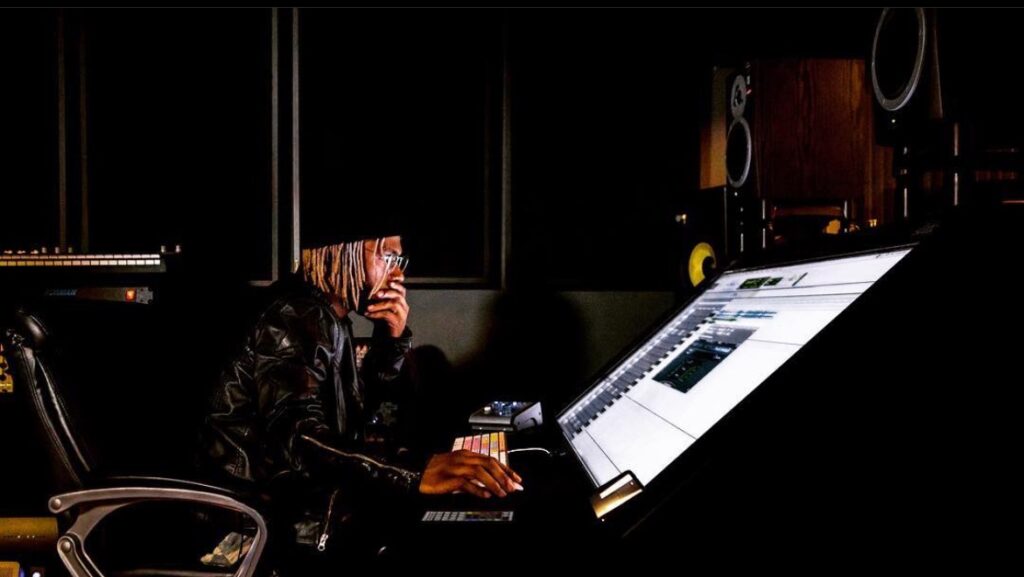Phoenix musician Sincerely Collins truly knows who he is, even when his music has taken different forms.

Collins first caught the music bug at age 13 after watching his cousin, a rapper in a group with Xzibit, record a three-song EP. From the making of a beat to the writing of the rhymes, recording and mixing it, he was there for it all.
“You have to create a voice within yourself, and it’s already there, it’s already you,” Collins says. “A lot of people just spend so much time trying to sound like somebody else that they don’t recognize that their voice that they already have is what they need to use to express.”
“I saw the whole process from start to finish, and it really felt innately second nature to me to dive right into it,” Collins says, “So after that first night, I asked him to take me to Walgreens and get me a notebook and pens, and that night I started writing down lyrics and never looked back.”
He filled up those notebooks for years, writing rhymes to beats. By tenth grade, Collins had recorded his first song and was making a name for himself at his high school, selling CDs and putting on performances. After graduating, Collins started a group called Weird Is The New Cool, taking inspiration from idol Pharrell Williams and his group N.E.R.D.
“That was kind of like my rebellion period from rap, and I just started getting really into rock music,” says Collins.
They opened up for big bands like Dirty Heads, Sublime, and 311, but after a few years, it was time to move on. Sincerely Collins the hip-hop artist was born, and in 2015 his song “Light Work” got major play on the radio. After moving to Los Angeles and living there for a few years, Collins headed back to the desert just before the pandemic and is excited about his future.
“I’m to a point now with my solo work that I’ve never signed a record contract that would hold me back from doing whatever I wanted to do with my music, so I’m in a blessed place now where I can start experimenting and going back to those live instruments and band groups,” Collins says.
With all of his experience, Collins was the perfect person to ask for some tips about how to get started in the music scene in Phoenix.
“I think it’s very easy to break into now,” says Collins. “I think if you want to be a musician in Phoenix, it’s fairly simple as far as just getting your foot in the door and getting some traction going. It’s a lot easier than when I was starting out, that’s for sure.”
Collins suggests connecting with promoters, making yourself available through social media, and researching who puts on live shows. He says Respect the Underground is another helpful resource that allows musicians and artists from all over the Valley to have an outlet for their music.
So what should you do once you’re ready to get into the studio?
“The fact you’re reading this interview, you’re kind of already doing what you should be doing,” Collins says. “Because one thing you have to do is you have to tap into where the action is, going and researching and finding a place like Demŭn Studios.”
Collins says to then listen to the people who have what you want to have and have done what you want to do. It might be engineers, producers, or a studio manager.
“They might not even be a musician, but they’ve been in those sessions, and they understand certain things you might not understand about getting to the next level, so that’s very important,” he says.
Listen too to the music you like to develop inspiration.
“It’s very easy for musicians to get away from just taking time to become inspired, but I think that’s one thing that I always do,” Collins says. “I take time to listen to other music that’s going to put me in a zone and in the frequency where I can tap into a frequency and do that for myself.”
And don’t forget to develop your unique voice. Collins says it’s important to get out of your own way and find your voice on the microphone because people will relate.
“Even people like Tyler, the Creator, and Odd Future, they were making music that was outlandish, but they have their voice, so people connected with it, and there are singers who aren’t the greatest singers in the world at all any means, and they would tell you that, but they found out how to put their voice, add a little autotune but still have their expression and their voice and their passion on that microphone,” Collins says. “People will connect with that, so you need to spend time finding that voice and making sure that you stick with that in your music so that you can transcend.”
As far as Demŭn Studios goes, Collins is definitely a fan. He spent a chunk of his career exclusively working out of it, and it’s even where his hit song “Yap Yap” was created.
“I personally trust that studio highly to produce a sound that can compete with industry-level sound,” Collins says. “When it comes to studios in Phoenix, I would definitely recommend this studio, and I think that all the readers are in the right place if they’re trying to find things that are going to help them in the industry in this city.“
###

